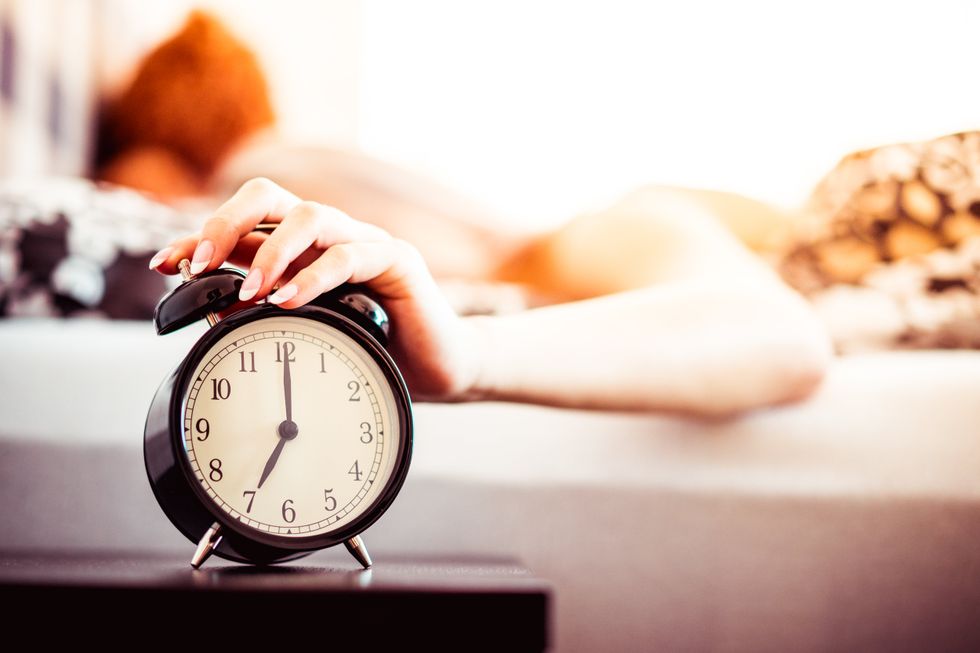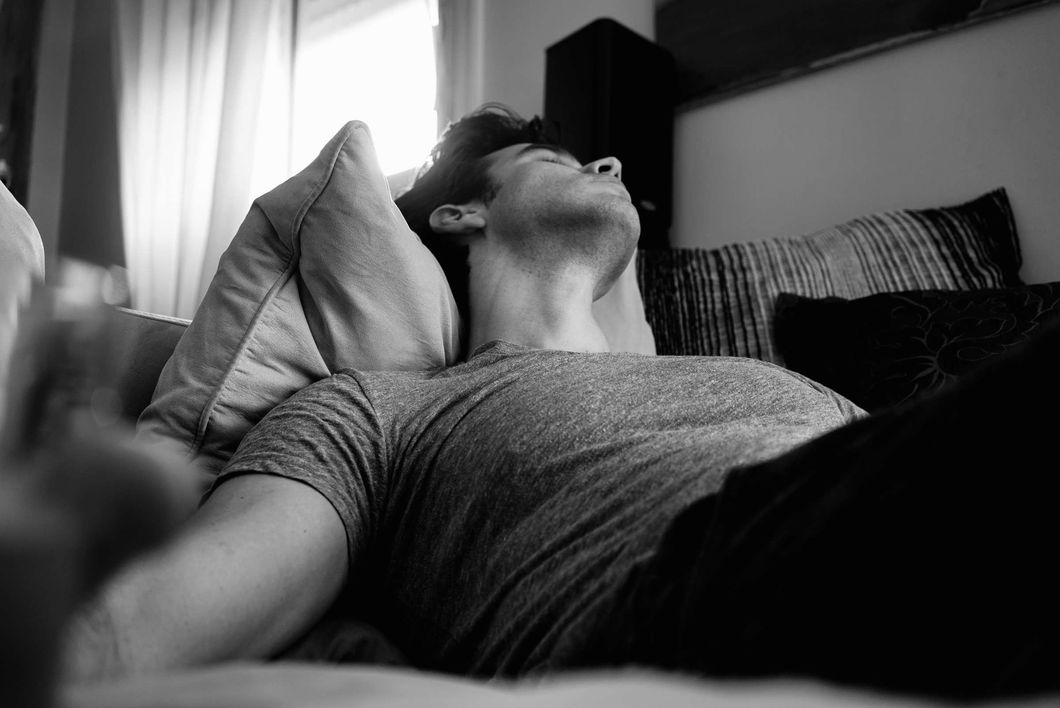Sleep. It's pretty great, isn't it?
During that time, we process all the valuable information we learned from that seminar where the professor talked for like an hour straight, and we wanted to die, and your body rests and repairs itself from all the strenuous activities you did earlier in the day. And, even better, you get to live out your subconscious's greatest desires while incorporating things you experienced that day.
Now, for all these amazing things to happen in the most effective way, we are told that we need eight to ten hours of sleep.
But who has enough time for eight to ten hours of sleep anyway?
I don't; however, over the years, I have noticed some of my siblings function perfectly fine off of six hours of sleep, and I am beyond jealous of them.
So, I did some research to figure out how they manage to do it and I stumbled upon a study where researchers found that a mutation in the gene DEC2 enables people to function perfectly fine with about six hours of sleep. After finding this out, I wondered if I had the mutation as well, or if I just drew the short straw.
So over spring break, I put myself to the test and only slept for six hours every night for a week. The first day, it was really hard to wake up. But I got there, eventually, after lying in bed for about an hour.

The rest of the day wasn't so bad, and it was like this for the next few days.
Then the fifth day hit hard. I could not function very well. I was craving junk food, especially fast food, struggled to stay in some conversations, and my will power to do anything diminished.
I knew I could not do this any longer, as I had a long drive back to school the next day, as well as a massive amount of homework I put off until the day before (as you do.)
I drew the conclusion that I did not have the gene, yet I still wanted to cut my sleep down to under eight hours. I wanted to try to see if I could train myself to work off six hours of sleep by slowly cutting how many hours asleep I got without changing any of my daily routines.
I started with seven-and-a-half hours of sleep for the first week, which wasn't that bad, and I didn't really see a difference. The next week, I cut it down to seven hours and, again, not much of a change. It was a little bit harder to get out of bed, but nothing troubling.
Moving to the third week, I cut down to six-and-a-half hours of sleep. Now I really started feeling a change. Getting up in the morning became a real chore. My focus in the classroom dropped a bit but still relatively the same. I started craving burgers more and more. My want for sleep massively grew, and I started drinking more energy drinks.

As the week went on, many of these traits died down, so I continued with decreasing my sleep. At this point, I had reached six hours.
I was ready for this but not expecting much after what happened the first time a month ago. The first few days were surprisingly fine, but I think the energy drinks had a lot to do with that.
Then, around the fourth day, I was crumbling. I started micro sleeping (when you fall asleep for around 90 seconds and don't remember anything in that time period.) This started happening a lot. My emotions were all out of whack as I began to get irritated much easier and my temper was definitely shortened. I was constantly in a mood where I was just not having it.
This went on for the next three days. When I was finished with that week, I decided to try to get anywhere from six-and-a-half to seven hours of sleep every night, but I knew there was going to have to be some changes to help me to complete this goal.
Diet is one of the most important things to achieve this goal. Eating three meals a day was crucial. Sometimes, I would even eat four. With the increased waking hours, you need more energy, which, as you likely know, you get from food.
You need the right food, good food, which is hard to find at a college dining hall. This is where fruit came in clutch. Eating a lot of fruit, especially apples (oh, I love apples,) gave me a good amount of energy to start the day.
Next, staying active is critical. The gym became my natural energy drink. It's a catalyst to get the adrenaline pumping, the neurons firing, and the dopamine flowing. All of these contributed to keeping my alertness up throughout the day, and also aided the regulation of my emotions so I wasn't flying off the wires at any shots people threw at me.
The most important habit I took away from this was completing work in the morning as most of my friends are still asleep. Because waking up at 7:30 every day is "too early," but that's none of my business. With no distractions, I have found myself getting ahead on my work more often, giving me extra time in the day to enjoy life.

It has been three weeks since I have been on six and a half to seven hours of sleep. Honestly, I feel better than ever. The extra time, although it might not seem to be a lot, really builds up over time.
In just a week, I have had an extra seven to ten hours on my hands.




 Energetic dance performance under the spotlight.
Energetic dance performance under the spotlight. Taylor Swift in a purple coat, captivating the crowd on stage.
Taylor Swift in a purple coat, captivating the crowd on stage. Taylor Swift shines on stage in a sparkling outfit and boots.
Taylor Swift shines on stage in a sparkling outfit and boots. Taylor Swift and Phoebe Bridgers sharing a joyful duet on stage.
Taylor Swift and Phoebe Bridgers sharing a joyful duet on stage.













